Colton Underwood Talks Lobbying Congress to 'Protect Student-Athlete' Mental Health
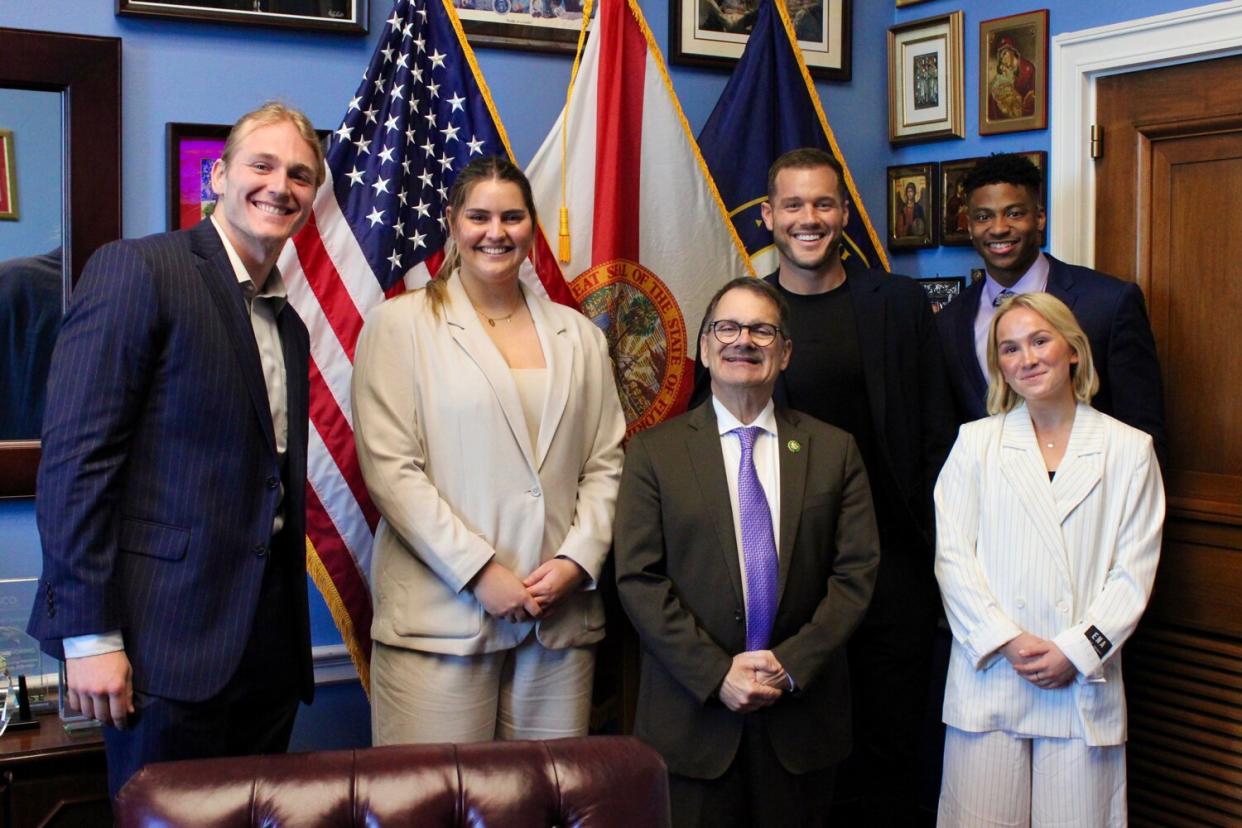
- Oops!Something went wrong.Please try again later.
Colton Underwood Legacy Foundation
Colton Underwood is using his platform to advocate for mental health.
Through his foundation, the Colton Underwood Legacy Foundation, the former reality star has launched the TEAMS Act (Targeting Emotional And Mental Stability), allowing the Secretary of Education to fund school-based mental health programs to support student-athletes struggling with anxiety and depression.
Additionally, the TEAMS Act would greatly enhance training for coaches and staff on responding to students exhibiting signs of mental distress.
Underwood, 31, tells PEOPLE, "I decided to really start supporting mental health and not only being an advocate for it for my own story, but looking at the root and where it started for me, and it was in sports," he says. "You break a bone and you break your shoulder and you tear an ACL, and there's a game plan for you, right?"
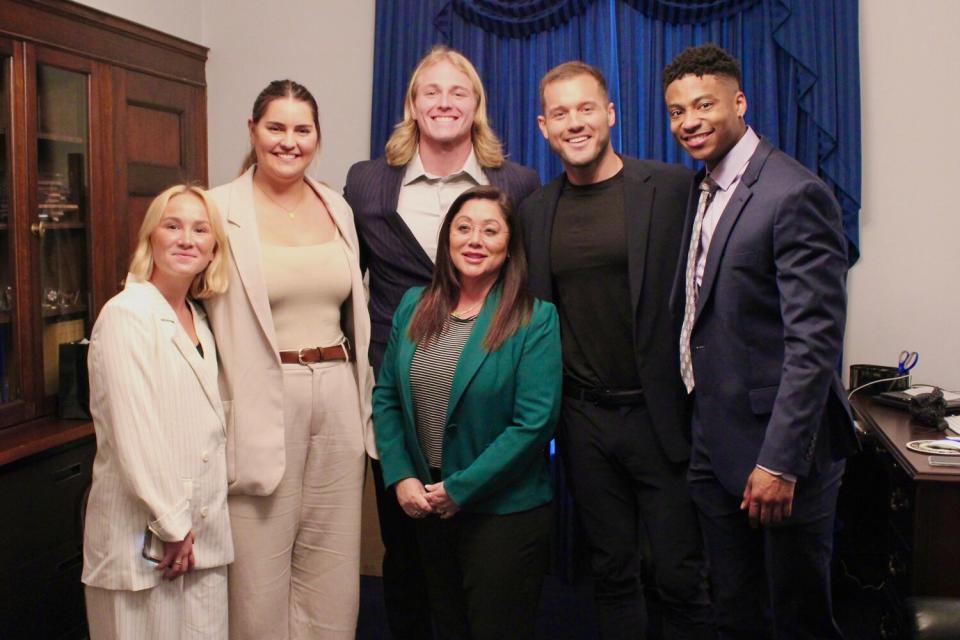
Colton Underwood Legacy Foundation
Underwood, who played football in college and for a short period on an NFL practice squad, says there should be the same "game plan" for players struggling with their mental health.
"When a student-athlete comes in and says, 'I have anxiety or I'm depressed or I have an eating disorder,' nobody knows what to do. There's no game plan," Underwood explains.
"Coaches aren't trained for that and athletic trainers really aren't equipped to take on mental health battles. I started discussing new legislation that could possibly protect student-athletes and help these universities have a game plan, provide them with some resources that they need, and that's how we came up with the TEAMS Act," says Underwood.
Never miss a story — sign up for PEOPLE's free daily newsletter to stay up-to-date on the best of what PEOPLE has to offer, from juicy celebrity news to compelling human interest stories.
Underwood enlisted several current and former collegiate athletes to travel with him to Washington D.C., where the group met with lawmakers about the act.
Among those players is Sarah Fuller, the first female player ever to score in a D1 football game; Byron Perkins, the first out-gay football player at an HBCU; Harry Miller, a former OSU football player who left the program to prioritize his own mental health and Cailin Brackin, a former athlete whose "Letter to College Sports" went viral after so many readers related to her mental health journey.
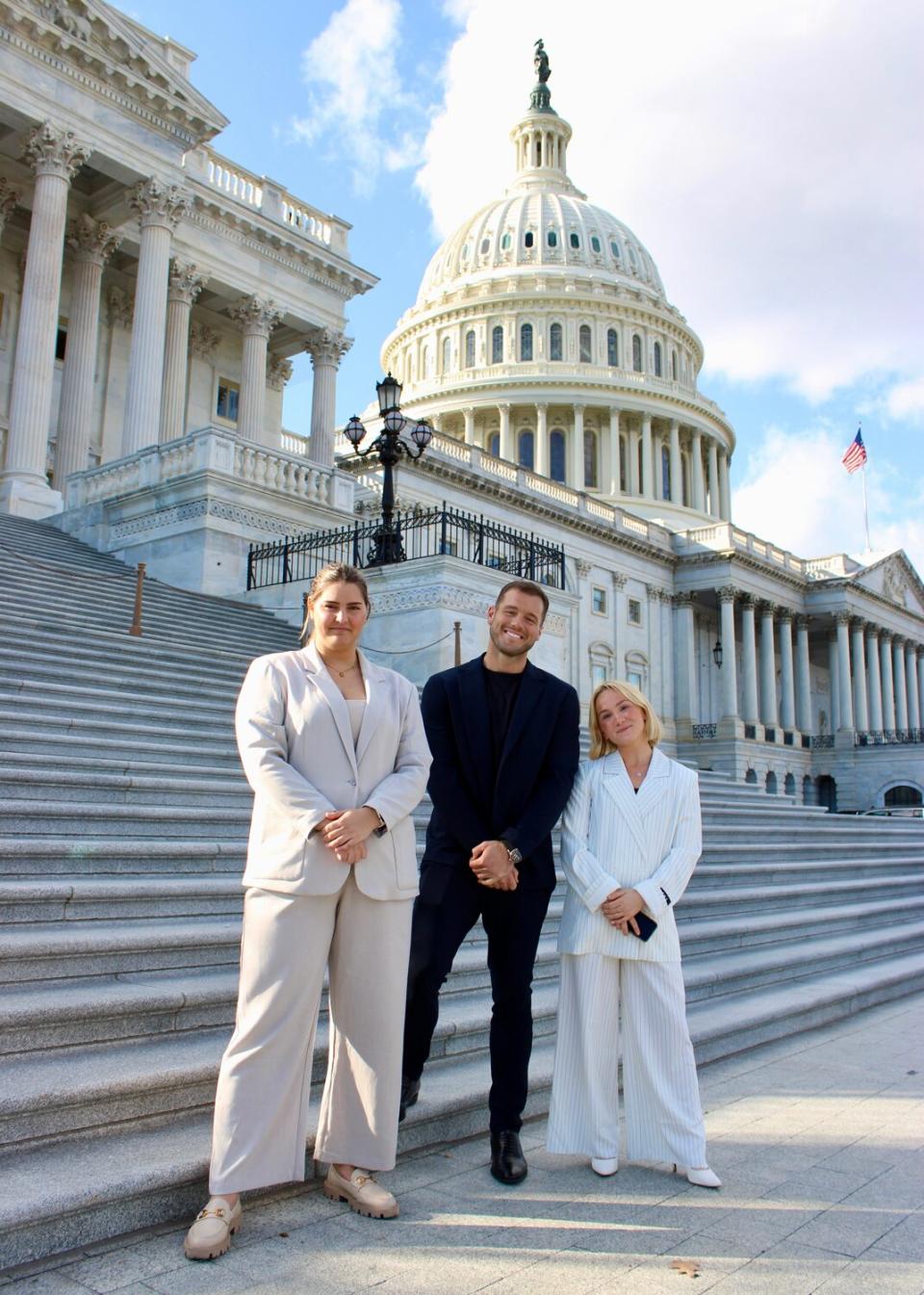
Colton Underwood Legacy Foundation
The group hopes that the TEAMS Act will allow more in-depth study into how universities are spending their money, says Underwood. "Are they investing the grant money into their coaches? Are they investing it into the players themselves? Are they investing it into a meditation app? And what I'm interested in seeing is the data and how it changes across the country and as far as geographically, but also in gender in different sports," he says.
"We are essentially saying we do not have the answers, but we want to have the answers," Underwood explains.
RELATED: Colton Underwood Opens Up About His 'Lowest' Stage for Mental Health Awareness: It'll 'Get Better'
The language on the bill is "really loose and that's on purpose," according to Underwood. "We really want to let these universities be as creative and as innovative as possible because, like I said, there's a lot of conversation about the conversation, but nobody wants actually to do anything."
Underwood believes the reason for such little action towards students' mental health is because of the broad nature of the conversation. "I think the reason for that is because when you hear mental health, and you understand how many people in our population are suffering and struggling, it can become very overwhelming," he says.
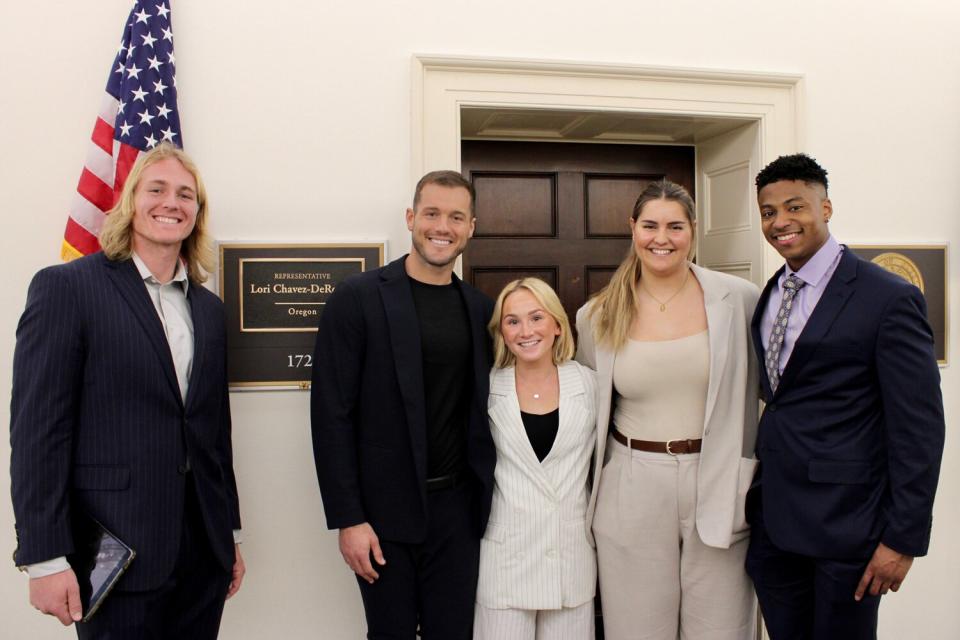
Colton Underwood Legacy Foundation
Having struggled with his own mental health privately and publicly during his journey on The Bachelor, Underwood is proud of the progress he's made. "I think one thing I didn't really realize is even by signing up to do The Bachelor and having such a public life, a lot of people really write it off on social media, say 'You signed up for this' and say, 'Nobody ever signs up to get bullied,'" he shares.
RELATED: Colton Underwood on Advice He'd Give Bachelor Clayton Echard: 'Make Sure You Have a Good Therapist'
In addition to the scrutiny endured in social media comments, Underwood notes that student-athletes are under more pressure now than ever before. "It's very easy to lift people up and it's very easy to tear people down, and we haven't done anything to protect our student-athletes from that yet," he says.
"If anything, with the new NIL, Name, Image [and] Likeness [policy], we've now provided them another sort of mountain to climb as far as competing for contracts, not just for their scholarship. Some of them are supporting their families with this. So, the pressure that these athletes are in when they step on that field or on the court is insurmountable, and it's tough for them."
Underwood admits that there are benefits that come with life in the public eye but explains that "the negatives and the pressures of screwing up and making mistakes" can be overwhelming.
Since his time on reality television, he says he's learned that "while people might have opinions, sometimes those opinions are just them projecting their own insecurities or their own mistakes."
Now, he tries "not to take things personally," but it's important to Underwood to his platform now "as an example to give back to the sports community" and "really help guide some of these student-athletes on how they can change the culture in sports."
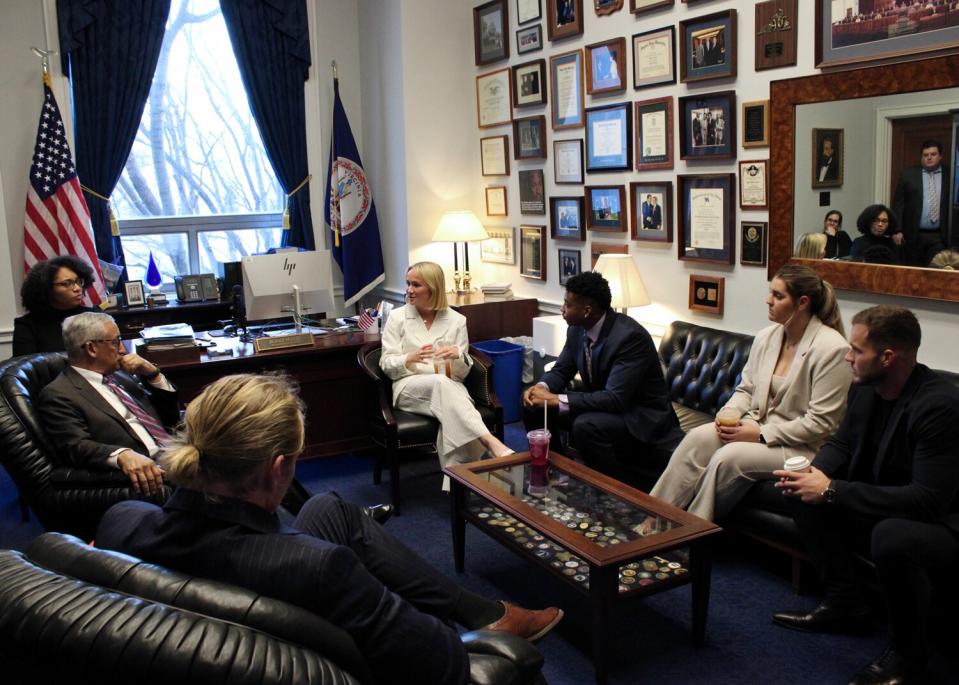
Colton Underwood Legacy Foundation
After his third trip to Washington D.C., Underwood says he's feeling more encouraged than ever by the potential of the TEAMS Act.
"I will say we finally feel heard and seen," he tells PEOPLE. "It's a bipartisan issue, which you cannot say about a lot of things right now in our country. So, it's super, super exciting that both sides of the aisle, both Democrat and Republican really agree on the fact that we need to do more for mental health and especially for our student-athletes"

